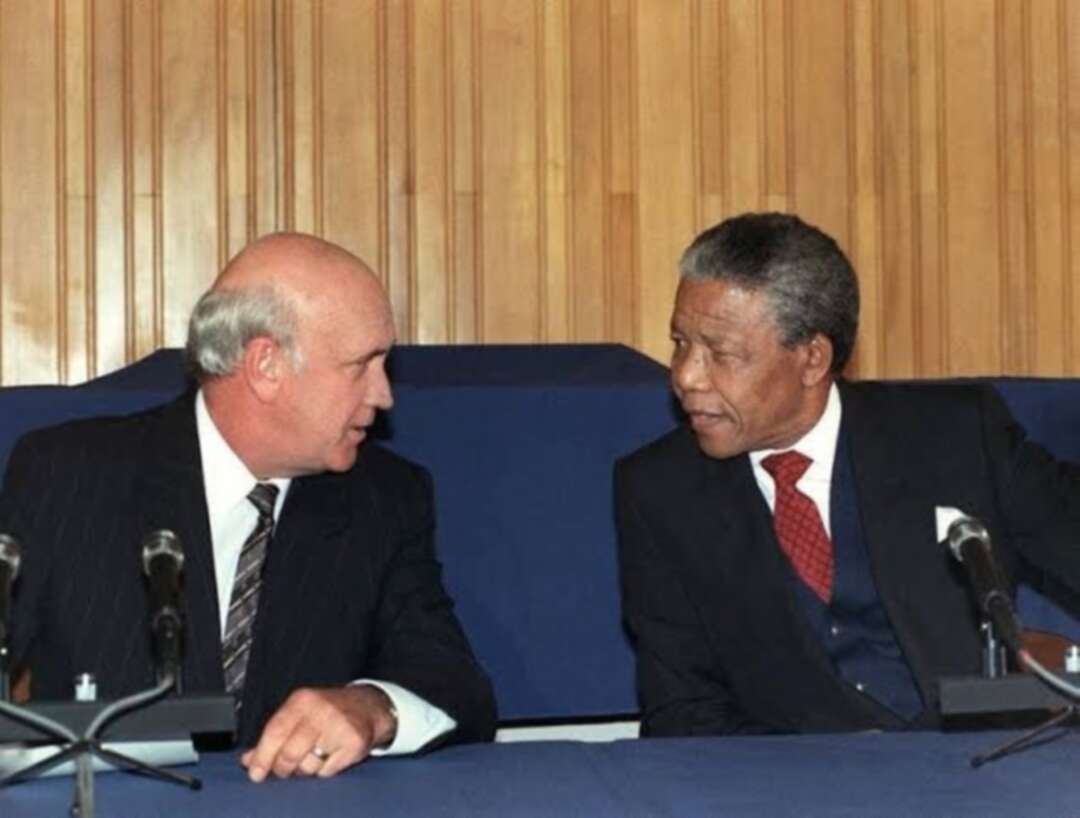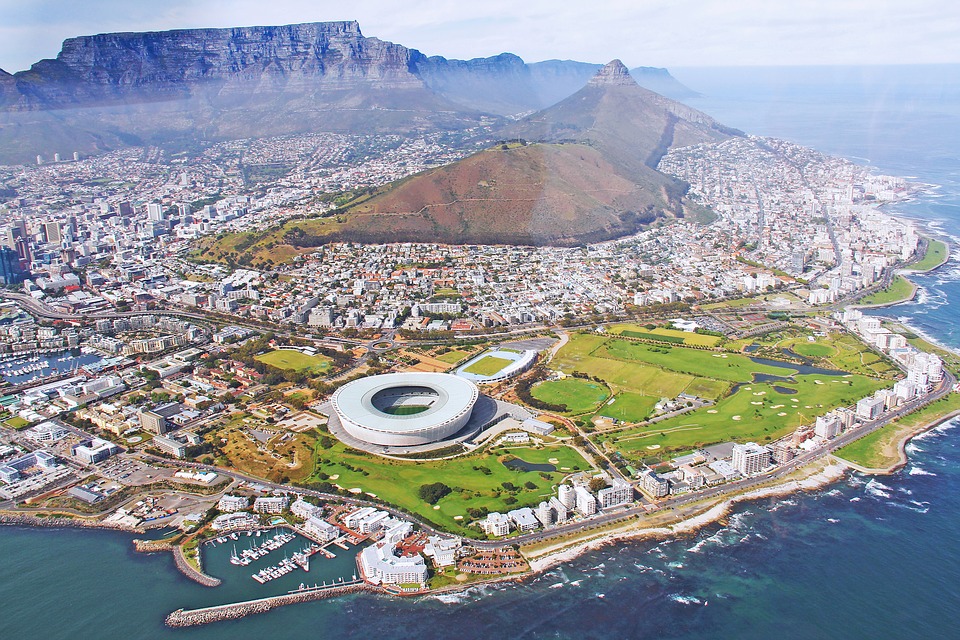-
South Africa's former president FW de Klerk dies at 85

The BBC reported, FW de Klerk, the former president of South Africa and the last white person to lead the country, has died at the age of 85.
It said that De Klerk, who was also a key figure in the transition to democracy, had been diagnosed with cancer this year.
It mentioned, he was head of state between September 1989 and May 1994.
In 1990 he announced he was releasing Nelson Mandela, leading to historic elections that brought the anti-apartheid leader to power.
De Klerk shared the Nobel Peace Prize with Mandela for helping to negotiate an end to apartheid. But his legacy divides opinion in South Africa.

A statement from the former president's FW de Klerk Foundation on Thursday said that he died peacefully at his home in Cape Town following his struggle against mesothelioma cancer.
The foundation had announced the diagnosis - a cancer that affects the lining of the lungs - in June.
The statement said, De Klerk is survived by his wife Elita, his children Jan and Susan and his grandchildren.
Ending apartheid
The former president was born in March 1936 in Johannesburg, into a line of Afrikaner National Party politicians.
He worked as a lawyer and served in a series of ministerial posts before taking over from PW Botha as the head of the National Party in February 1989, and months later becoming president.
In a famous speech to parliament the following year, he announced that he was removing the ban on parties that included Mandela's African National Congress (ANC).
He also announced that Mandela would be released from prison after 27 years.
His actions helped bring an end to apartheid-era South Africa, and he became one of the country's two deputy presidents after the multi-party elections in 1994 that saw Mandela become president.
He retired from politics in 1997 saying: "I am resigning because I am convinced it is in the best interest of the party and the country."
'Uneven legacy'
Although the relationship between De Klerk and Mandela was often punctuated by bitter disagreements, the new president described the man he succeeded as someone of great integrity.
In a statement on Thursday, the Nelson Mandela Foundation said De Klerk would "forever be linked to Nelson Mandela in the annals of South African history".
The statement added: "De Klerk's legacy is a big one. It is also an uneven one, something South Africans are called to reckon with in this moment."
Many have blamed De Klerk for failing to curb violence against black South Africans and anti-apartheid activists during his time in power.
Read more: Hate crimes in US Los Angeles increased up to 20 percent in 2020
Last year, he became embroiled in a row in which he was accused of playing down the seriousness of apartheid. He later apologised for "quibbling" over the matter.
Human rights lawyer Howard Varney described him as an "apologist for apartheid".
But South Africa's main opposition party, the Democratic Alliance, said his contribution to the country's transition to democracy could not be overstated.
Party leader John Steenhuisen said in a statement: "His decision, within a year of taking over the presidency... to unban liberation movements, release Nelson Mandela from prison, lift the ban on political marches and begin the four year negotiation process towards our first democratic election was a watershed moment in our country's history."
Source: BBC
You May Also Like
Popular Posts
Caricature
BENEFIT Sponsors BuildHer...
- April 23, 2025
BENEFIT, the Kingdom’s innovator and leading company in Fintech and electronic financial transactions service, has sponsored the BuildHer CityHack 2025 Hackathon, a two-day event spearheaded by the College of Engineering and Technology at the Royal University for Women (RUW).
Aimed at secondary school students, the event brought together a distinguished group of academic professionals and technology experts to mentor and inspire young participants.
More than 100 high school students from across the Kingdom of Bahrain took part in the hackathon, which featured an intensive programme of training workshops and hands-on sessions. These activities were tailored to enhance participants’ critical thinking, collaborative problem-solving, and team-building capabilities, while also encouraging the development of practical and sustainable solutions to contemporary challenges using modern technological tools.
BENEFIT’s Chief Executive Mr. Abdulwahed AlJanahi, commented: “Our support for this educational hackathon reflects our long-term strategic vision to nurture the talents of emerging national youth and empower the next generation of accomplished female leaders in technology. By fostering creativity and innovation, we aim to contribute meaningfully to Bahrain’s comprehensive development goals and align with the aspirations outlined in the Kingdom’s Vision 2030—an ambition in which BENEFIT plays a central role.”
Professor Riyadh Yousif Hamzah, President of the Royal University for Women, commented: “This initiative reflects our commitment to advancing women in STEM fields. We're cultivating a generation of creative, solution-driven female leaders who will drive national development. Our partnership with BENEFIT exemplifies the powerful synergy between academia and private sector in supporting educational innovation.”
Hanan Abdulla Hasan, Senior Manager, PR & Communication at BENEFIT, said: “We are honoured to collaborate with RUW in supporting this remarkable technology-focused event. It highlights our commitment to social responsibility, and our ongoing efforts to enhance the digital and innovation capabilities of young Bahraini women and foster their ability to harness technological tools in the service of a smarter, more sustainable future.”
For his part, Dr. Humam ElAgha, Acting Dean of the College of Engineering and Technology at the University, said: “BuildHer CityHack 2025 embodies our hands-on approach to education. By tackling real-world problems through creative thinking and sustainable solutions, we're preparing women to thrive in the knowledge economy – a cornerstone of the University's vision.”
opinion
Report
ads
Newsletter
Subscribe to our mailing list to get the new updates!






















